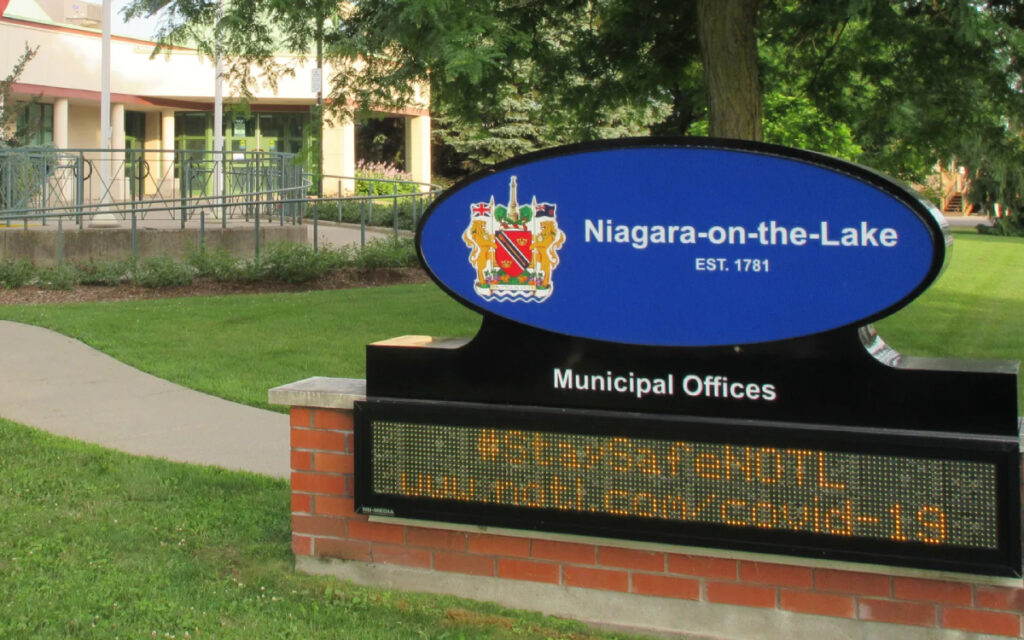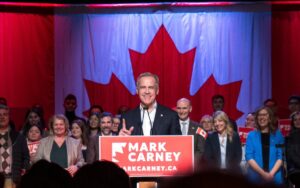
Lord Mayor Gary Zalepa argued that any additional pay raise should be considered at committee as an earlier part of the budget process, “not on the floor of a committee budget meeting.” Photo Credit: Don Mitchell/Global News.
Councillors in Niagara-on-the-Lake have iced a proposal to give themselves a 4.9 per cent pay raise, which would have meant roughly an $800 pay raise for each councillor.
Councillor Maria Mavridis was the one who introduced the motion, which was defeated by her fellow councillors. Councillors in Niagara-on-the-Lake were already scheduled to get a 2.5 per cent raise (roughly $400) as part of the 2024 budget.
Right now, each councillor earns $16,752 for their part-time responsibilities sitting on council. The Lord Mayor is entitled to a salary of $53,068.
The longstanding policy has been to have councillors’ salaries adjusted upwards each year based on the lower of either the approved employee bargaining group increase or the Statistics Canada Construction Price index, according to Kyle Freeborn, Niagara-on-the-Lake’s Director of Corporate Services and Treasurer.
Mavridis argued that councillors put in “a lot of work” and that a salary of roughly $17,000 is inadequate. She argued that council needed to “do things the proper way” and recognized that “taxes will go up” as a consequence.
Mavridis did gain support from one colleague, Councillor Wendy Cheropita, who called Mavridis “brave” for proposing a larger pay hike, although Mavridis originally thought her proposal would be “welcomed” by more of her colleagues.
Aside from Cheropita, the rest of council refused to support the motion, including Lord Mayor Gary Zalepa.
Zalepa argued that any additional pay raise should be considered at committee as an earlier part of the budget process, “not on the floor of a committee budget meeting.”
Councillor Sandra O’Connor wanted to see more details about how such a pay raise would impact the budget and where Niagara-on-the-Lake’s salaries fall within the broader region.
Mavridis and Cheropita correctly argued that Niagara-on-the-Lake councillors are paid less than councillors in other towns in Niagara Region.
For example, Pelham now pays its councillors $22,757. West Lincoln pays its councillors $30,000. Both municipalities increased the pay of their mayors and councillors last year by a significant amount.
With changes having been implemented in Pelham and West Lincoln, Pelham councillors now make roughly $6,000 a year more than councillors in Niagara-on-the-Lake. West Lincoln councillors enjoy a salary nearly double that of Niagara-on-the-Lake councillors.
Regional councillors make $40,355.
At the same council meeting, council reduced the proposed local property tax increase to 6.75 per cent. Staff had initially proposed a 9.4 per cent increase.
Part of that will be paid for through a $200,000 contribution to the budget from the town’s reserve funds.
Most of that decrease is due to a proposal made by Councillor Nick Ruller to take half of the funds the town had previously set aside to hire six new staff members and use that money to lessen the property tax increase.
That single move was responsible for a 1.88 percentage point reduction in the property tax hike.
The final budget is not yet fully settled. Councillors are still debating issues surrounding the Municipal Accommodation Tax and how the revenue should be spent.
Some councillors, including Erwin Wiens, expressed concern about council repeatedly taking money out of reserve funds to lower property tax increases, particularly pointing to the lack of sustainability.
The final vote on Niagara-on-the-Lake’s budget will take place during a March 26 meeting of council. The vast majority of the budget is expected to be approved as is.

Jay Goldberg is the Ontario Director at the Canadian Taxpayers Federation. He previously served as a policy fellow at the Munk School of Public Policy and Global Affairs. Jay holds a Ph.D. in Political Science from the University of Toronto.


















